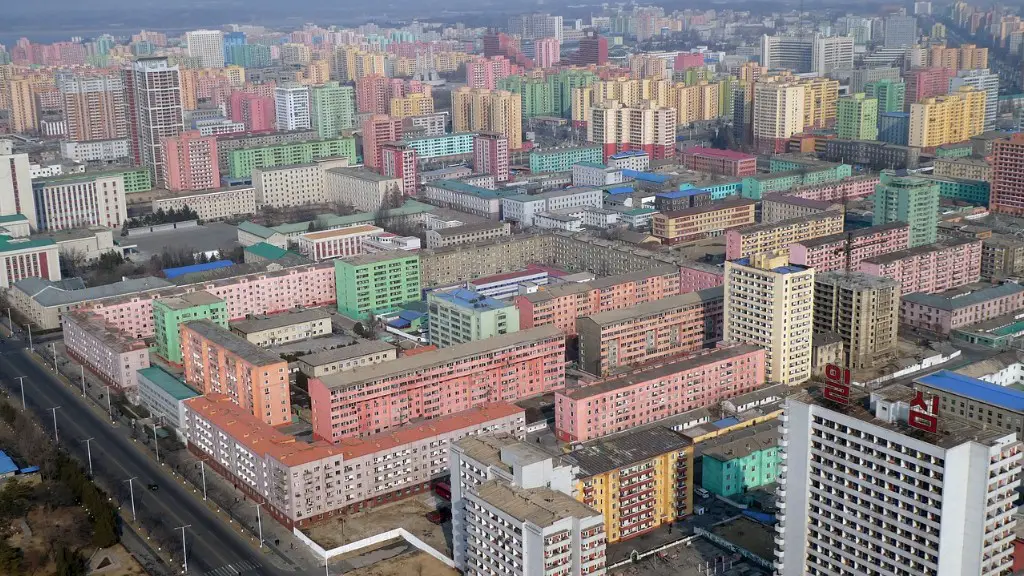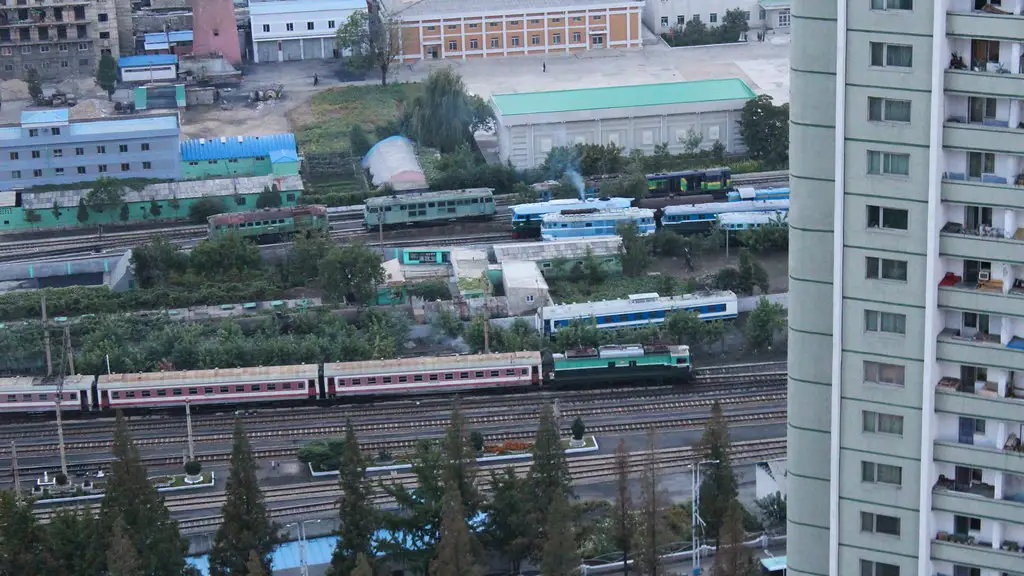What is 5G and is There 5G in North Korea?
From the early 2000s, the mobile network and technology that people use all around the world to access the internet has advanced a great deal. The new generation of networks, called 5G, are currently being developed by many different countries in order to stay ahead of the game. 5G stands for ‘fifth generation’ and it is a new networking capability that will give users faster speeds and more robust coverage for their data connection and services. 5G promises download speeds up to 20 times faster than at present, with lower latency – the time taken for data to be sent from one point to another. But is there 5G in North Korea?
North Korea is well known for its dictator-led system and lack of information and resources, so there must be a reason why the country has not yet adopted 5G. Yes, North Korea has made some progress in the world of mobile technology, but not to the same extent as some of its neighbors. The country currently has a 3G network, with coverage reaching more than 90% of the population, which is a good indicator that the country is making progress. However, the 3G network that is available in North Korea is not as good as it could be, as it only provides data speeds of up to 2Mbps – a far cry from the 20Mbps that 5G would bring.
It is believed that the reason why North Korea has not yet dived into 5G technology is due to the country’s lack of access to the necessary technology and resources. North Korea does not have the same level of access to the global market as other countries, which means that it is difficult for the country to obtain the technology or financing needed to develop a 5G network. This means that the country is still some way off from developing and deploying a 5G network, and it may not be until 2024 or 2025 that the country could make such a move.
In addition to the lack of resources and technology, there is also the issue of the government’s tight control over the media and communication networks in the country, which may also be a hurdle to the adoption of 5G. North Korea operates a system of tight censorship, which means that there is a lack of access to information and resources, particularly outside of the country. This could make it difficult to develop a 5G network that is suitable for the country.
Despite the lack of progress in North Korea, the country is still investing in other areas of mobile technology. North Korea has recently developed its own mobile app, ‘Manbang’, which provides access to information about the country and its people. This can be seen as a step forward for the country in terms of its mobile technology, but it is still far behind the likes of South Korea, where 5G is already in use.
Overall, it appears that North Korea is not yet ready to dive into the world of 5G technology. The country is still in the process of developing its current mobile infrastructure, which may take some time before 5G can be introduced. North Korea will need access to more resources and technology before it can make such a move, and the government’s control over information may also be a hurdle.
Political and Economic Factors
In order to assess the likelihood of North Korea adopting 5G, it is important to consider the political and economic factors at play. North Korea is known for its autocratic political structure and low-level economy, and these factors could stand in the way of the country’s introduction of 5G. The government is known to heavily tax imports and exports, which could be a significant roadblock for North Korea’s introduction of the technology. Additionally, North Korea’s low level of economic development could be a major hindrance to its adoption of 5G, as the country does not have the financial resources or infrastructure necessary to carry it out.
Despite these hindrances, however, there is still some hope for North Korea’s adoption of 5G. The country does have access to some international markets, and it is believed that it could potentially use foreign technology and resources to develop its 5G network. Additionally, with help from countries like China, North Korea might be able to use various deals and investments to aid its development.
Moreover, it is important to note that while North Korea may be lagging behind when it comes to the adoption of 5G, it is not entirely out of the running. With a bit of assistance and cooperation, the country could potentially move ahead with the adoption of the technology. It is also important to note that the use of 5G in North Korea would be beneficial to not only the country’s economy, but to its citizens as well. 5G would increase access to information and would also facilitate better communication and collaboration between the country’s people and their counterparts from other countries.
Is There a Possibility of North Korea Adopting 5G?
Overall, the answer to the question of whether North Korea has 5G is a resounding no. The country currently lacks the resources and technology to bring 5G to its citizens, and it is unlikely that this will change anytime soon. That said, the country still has some room to grow when it comes to developing a 5G network, and with the help of foreign countries, this may become a reality.
The introduction of 5G in North Korea could have a variety of positive impacts on the country. It could potentially lead to better access to information for its citizens, as well as increased collaboration and communication between North Koreans and those from other countries. 5G would also bring with it faster speeds, increased data coverage, and better performance for the country’s citizens.
Although North Korea has yet to adopt 5G, it is not yet out of the running. With the help of other countries and willingness from the North Korean government, the country could still find a way to bring the technology to its citizens. Until then, it appears that North Korea is still some way off from becoming a 5G nation.
International Reactions
The international community has reacted strongly to the prospect of North Korea adopting 5G technology. On the one hand, many countries are concerned that the technology could be used by the North Korean government to further restrict the rights of its citizens, or even more ominously, to create cyberattack capabilities that are sophisticated and hard to detect. On the other hand, some countries view the introduction of 5G as an opportunity to improve the communication links between North Korea and the rest of the world, as well as to encourage greater collaboration in fields like technology and culture.
Moreover, the international reactions to North Korea’s adoption of 5G have been varied, with some countries calling for a tougher stance and some countries advocating for a more cooperative approach. Many countries have expressed concern about the potential security implications of 5G, while others have highlighted the potential benefits that its adoption could bring, such as improved access to information for the North Korean people.
Overall, the international community continues to be divided on the issue of North Korea’s introduction of 5G technology. As the debate continues, it is important that all parties remain cautious and ensure that any policy decisions taken are both informed and measured.
Comparisons with Other Countries
To better understand North Korea’s lack of progress on 5G, it is important to compare the country’s situation with that of other countries. For instance, South Korea and Japan are two of the countries that have made the most progress with 5G, with the technology now available in both countries. On the other hand, North Korea has yet to make any significant strides in this area.
Additionally, China has also made some headway in introducing 5G, with the technology expected to be made available to its citizens by the end of this year. This is a significant move for the country, and it is a good indicator of what North Korea could potentially achieve if it were to take a similar approach. However, it is important to note that China has much more financial resources available to it than North Korea, making it easier for the country to develop its 5G network.
Finally, it is also important to mention that a number of other countries are now taking steps to adopt 5G. In the United States, a variety of providers are offering 5G coverage in certain major cities, while in Europe, countries like the UK and Germany are also introducing the technology. This shows that, while North Korea is not yet ready to join the 5G revolution, it is certainly possible for the country to get there eventually.
Societal and Cultural Implications
It is also important to consider the societal and cultural implications of 5G in North Korea. As mentioned above, the technology could potentially lead to increased access to information for North Korean citizens, as well as increased collaboration and communication between the country’s people and those from other countries. However, it is also important to note that this could potentially open up North Korea’s citizens to a variety of risks, such as cyberattacks and censorship from the government.
Moreover, it is also important to consider the potential implications of 5G in terms of culture and society. This new technology could potentially lead to an influx of foreign culture into North Korea, which could have an impact on the way that people in the country view the world and their own culture. This could potentially lead to a greater openness and acceptance of foreign ideas and cultures, but it could also potentially lead to a greater degree of polarization and tension, particularly if the country’s citizens view the influx of foreign culture with suspicion and fear.
Overall, it is clear that the introduction of 5G to North Korea could have a variety of positive and negative implications. It is therefore important that any move in this direction be carefully considered and weighed up before any decisions are made.





